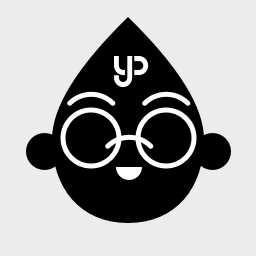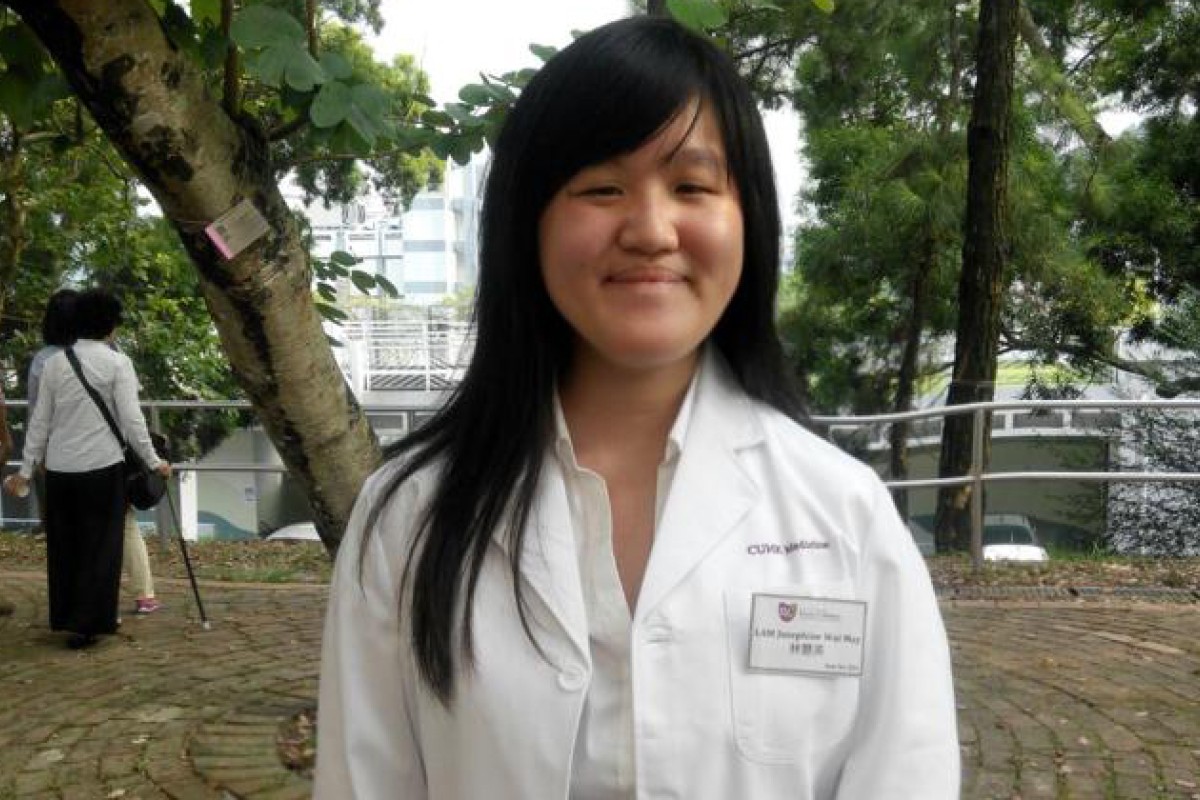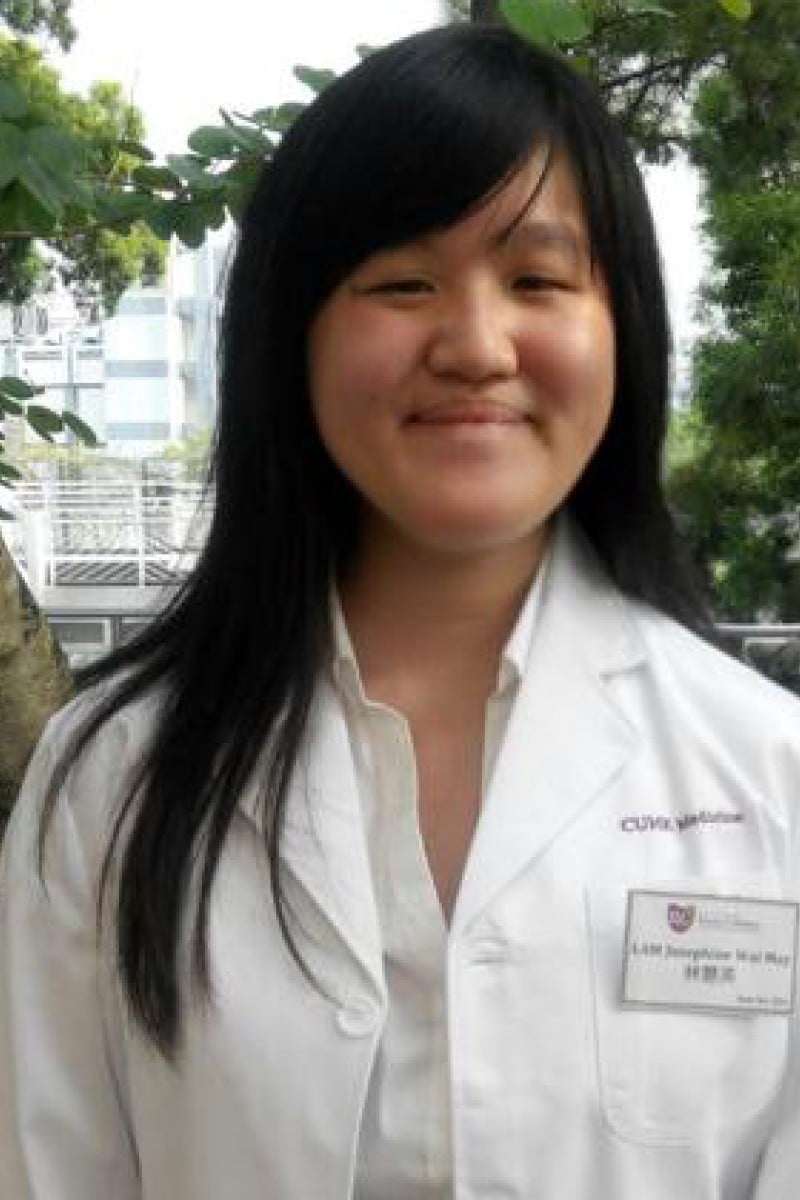
 Josephine Lam is proud to wear her white coat, and although it's hard work, it's all worth it.
Josephine Lam is proud to wear her white coat, and although it's hard work, it's all worth it.Do you picture yourself in a white coat, scurrying over gleaming floors with a stethoscope wrapped around your neck? The first step to becoming a doctor is getting the qualifications, so Young Post spoke to Chinese University’s (CUHK) Josephine Lam to learn more about what it’s like to be a medical student.
Lam, 19, was a student at King George V School before going to CUHK. While she scored 43 out of 45 on the IB, a great score isn’t worth much if the subjects aren’t relevant.
For acceptance to medicine at CUHK, IB maths studies module is not recognised as a substitute for maths, and two HL sciences are mandatory, one of which must be HL chemistry.
For the second science, “HL physics is allowed since we study radiology, but I’d recommend HL biology as it makes life so much easier”, Lam tells Young Post.
But even the right subjects can’t hide the fact that medicine is hard.
“Entry requirements vary from year to year depending on the year group and university,” she explains.
“Of course, good grades are expected – that typically means a score of between 42 and 45 for IB students.”
And the pressure to do well academically doesn’t end once you’re accepted to the programme, although medicine is graded differently from other courses. Medical students don’t have a GPA and are not ranked – they only receive a pass or a fail. If you fail, you take a supplementary exam. If you fail this supplementary exam, you repeat the academic year. You can only repeat a maximum of three academic years.
Lam says her timetable isn’t the same as her friends on other courses, either.
For example, an economics student might attend a statistics class every Monday morning, and have the rest of the day to work on their own, but medicine is a lot more structured.
“We have lectures and tutorials in the morning, followed by classes on the same material in the afternoon,” says Lam.
“The first lecture might be at 9.30am, with two or three 50-minute lectures after it. There is a small break in between. After lunch, tutorials start at 2.30pm.”
During tutorials, you’re given a practical situation relating to the stuff you’ve learned in the lecture that morning. The teaching day ends anywhere between 4.30pm and 6.30pm, depending on your classes.
It usually takes six years to complete a medical degree, and the fee is usually around HK$42,000 per year. The first year is less intense, and is dedicated to health and public sciences.
“The aim of this is to get everyone up to the same level,” says Lam. “It is an opportunity to fulfil basic university requirements, such as passing PE and English, so they’re out of the way in subsequent years.”
For Lam, adjusting to life as a medical student was tough. Apart from the typical gripes like trying to stay awake during lectures and repetitive canteen food, she had some serious struggles.
“The main problem was the vast difference between secondary school and university. Adapting to the new learning style was difficult,” she says. “Since it was different to what I was used to, I didn’t know how to learn effectively. In term two, I finally understood my learning style, but then I had to catch up with all the first-term material as well as the second. I was under a lot of pressure, especially since the exams were approaching.”
The workload is also heavier, adds Lam. “Listen attentively to the professor and filter what is important. Being a critical thinker is key – it is not humanly possible to remember everything you are taught. Think: ‘Will I need this knowledge?’ There’s no point spending time learning about an obscure artery in your body that never gets damaged.”
Despite these difficulties, Lam enjoys the satisfaction medicine brings. “It is the greatest feeling in the world; knowing you’ll have the power to heal people. It makes all the studying worth it.” She says the extremely caring, helpful and united student community at CUHK make the transition much easier.
So how do you prepare yourself for such an intensive course? “Obviously, you must be academically capable,” says Lam. “However, discipline is also quite important – start working on your study endurance and task management skills.” She suggests using an application, such as Outlook, to plan your schedule and stay on top of things.
“Have organised notes all packed in one book. Know yourself and what is beneficial for your learning.”

